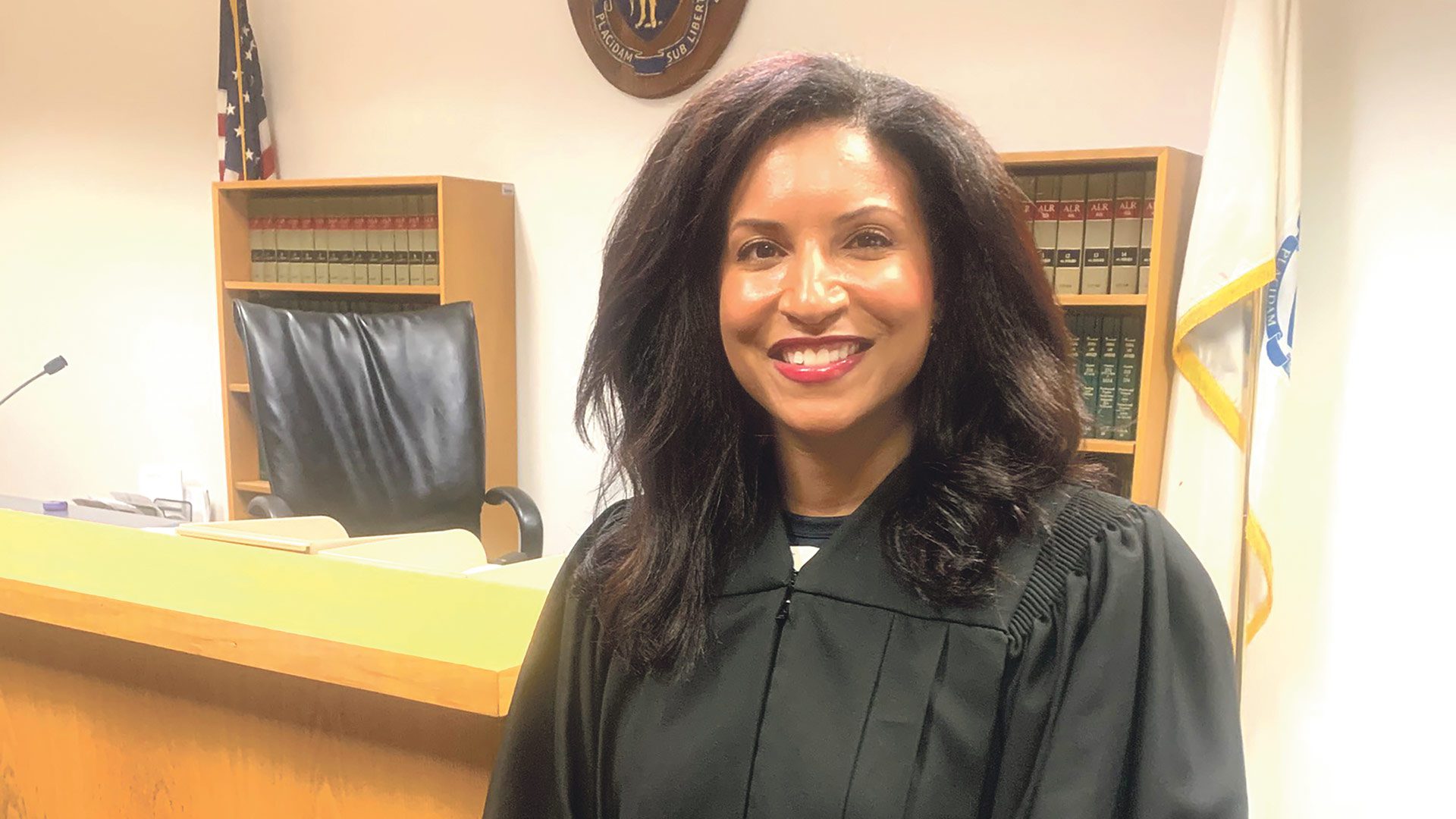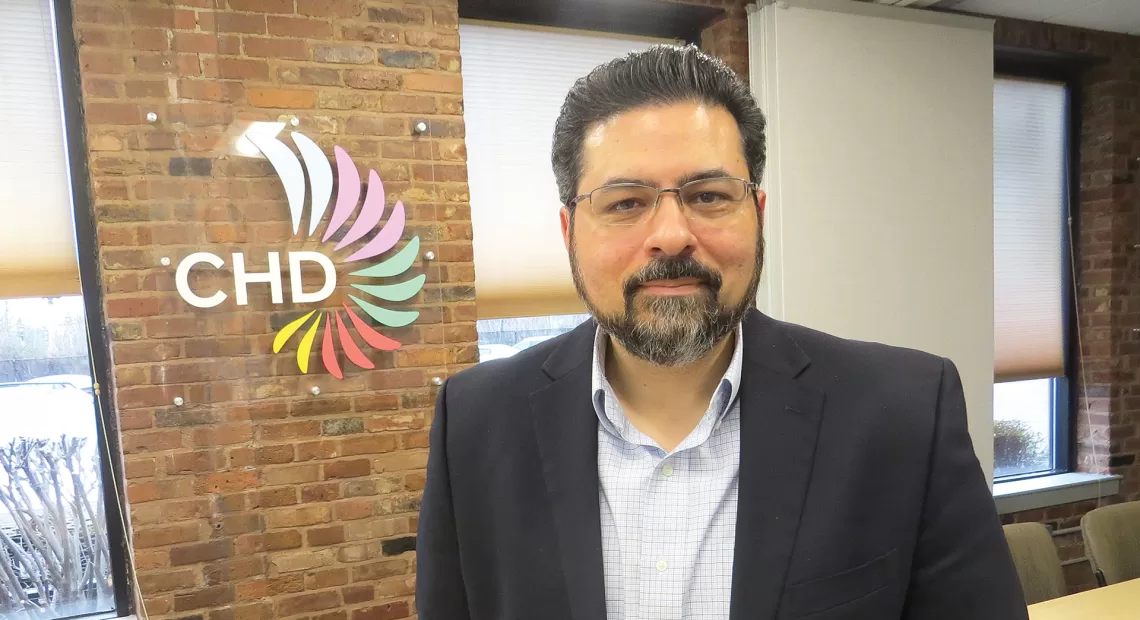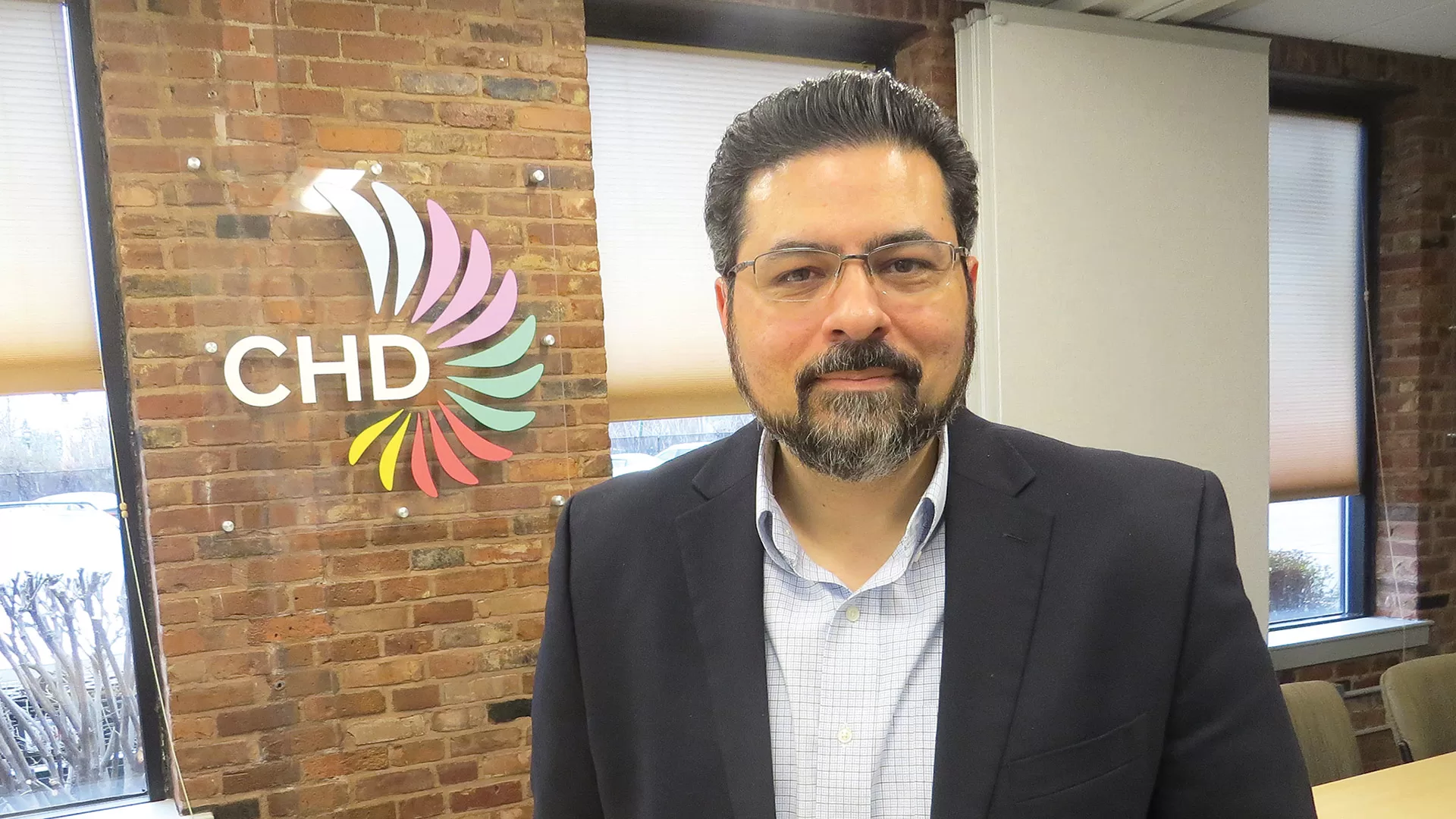Where Are They Now?

Danielle Williams has made a smooth transition from practicing law to the bench.

Danielle Williams seen as a 40 Under Forty winner in 2015.
“When last we left our heroes…”
That’s a line Baby Boomers will remember from the start of each Rocky & Bullwinkle episode. Danielle Williams might have written it a few times a decade or so back, when she was co-creator of comic-book heroes known as the Mighty Magical Majestics, “keepers of ancient mysteries and defenders of civilization.”
Williams’ creative exploits were a major storyline as she was named to BusinessWest’s Forty Under 40 class of 2015; by day, she was an attorney with the Northampton-based firm Fierst Kane & Bloomberg LLP.
Today, she’s still writing, but it takes a much different form, such as motion decisions, which comprise one of the myriad aspects of her work as associate justice of the Westfield District Court, a role she assumed almost five years ago.
This isn’t the job she’d always dreamed of. It’s the position she was told she should apply for after serving just a few years in the job she did always dream of — assistant court magistrate.
“I wanted to do that way back when I was a victim witness advocate in 1999; I had my eye on that job for a long time,” Williams said, noting that it comes with a number of responsibilities. “When I finally got the job, in 2016, I thought I had reached the height of where I wanted to go.”
But after being told by more of the few of the judges she worked with that she should consider joining them behind the bench, she did just that. She wasn’t sure she was ready the first time she applied, and didn’t get an appointment, but felt far more ready the second time, which turned out to be the charm.
Today, she splits her time among courts scattered across the 413, or what’s known as District 6, from Westfield (although she’s not there much, even though that’s her court of appointment) to North Adams; from Chicopee to Orange. On the day she spoke with BusinessWest for the second installment of its Where Are They Now? series, she was in the Palmer court, a shorter drive from her home in Wilbraham than to most of the other courts.
Still, she puts a considerable number of miles on the car, maybe the thing she likes the least about this job, which also provides her with daily opportunities to learn and grow as a jurist and, more importantly, chances to make a difference.
“Our job is to give people access to justice and an opportunity to be heard,” she said. “I’m glad to be part of a system where I hope I’m helping people do that.”
As noted earlier, while Williams enjoyed practicing law — she focused on litigation, housing, and intellectual-property law — she always wanted to be a clerk magistrate. And it wasn’t really long after that goal was realized in 2017 that Judge Willam Boyle, one of many she worked with, suggested she consider applying for a judgeship.
“It’s difficult to make those decisions, and, in my opinion, it should be difficult to make those decisions. Because when you make those decisions, you’re not just affecting that person in front of you; you’re affecting that person’s family and their community. So those shouldn’t be easy decisions to make.”
Williams admitted she needed some convincing, but eventually did apply, unsuccessfully at first, before breaking through at the height of COVID, when she was appointed by Gov. Charlie Baker to the Westfield District Court, and started on Black Friday.
She traditionally gets word a week or two in advance of what court she will be sitting in, but things happen, as she noted, so she must be prepared for anything — and to travel anywhere.
District courts handle both criminal and civil matters, Williams explained, adding that, while there are many aspects to this work, perhaps the most difficult is sentencing. And for some crimes, including firearms violations, there are mandatory minimums, which takes some of the decision making from her, but doesn’t make sentencing anyone any easier.
“Some of our defendants are so very young — their early 20s, and sometimes 18 or 19,” she said. “And there is a proliferation of firearms in our cities. It’s sad — sometimes you don’t have a choice. They don’t give you much of a choice, but it’s still sad to have to sentence someone so young.
“It’s difficult to make those decisions, and, in my opinion, it should be difficult to make those decisions,” she went on. “Because when you make those decisions, you’re not just affecting that person in front of you; you’re affecting that person’s family and their community. So those shouldn’t be easy decisions to make.”
As for what she likes most about her work, Williams said it’s the ability to make a difference in the lives of others — and, for her personally, the opportunity to continue learning.
“We get some really interesting issues, particularly with motions to suppress,” she noted. “It makes me learn, it makes me do research, so you feel like you’re always learning.”
She noted that this has been an intriguing year for the courts, with high-profile cases in Massachusetts (the Karen Read murder trial, for example) and nationally — such as many lawsuits involving Donald Trump.
Overall, and in Massachusetts especially, she believes the judicial system has … well, acquitted itself well.
“I’m very proud of our judicial system in Massachusetts; I’m proud of my colleagues,” she told BusinessWest. “I’m proud of the work that they do every day, both at the District Court level and the Superior Court and up. I read the decisions that come out of the SJC, and I speak with my colleagues, and the ones that I speak with are making considered decisions and doing their best to make decisions in line with the law.”







